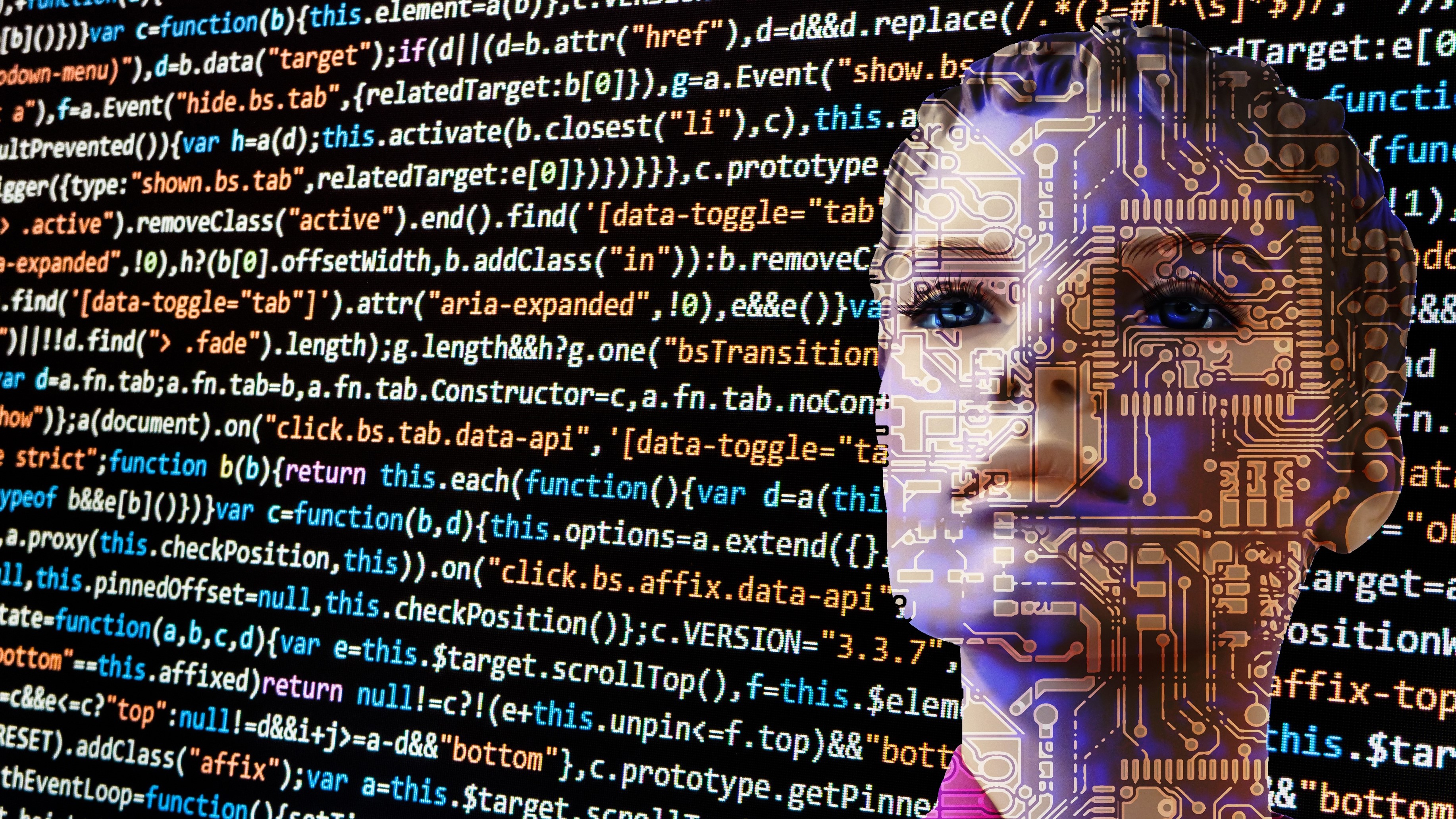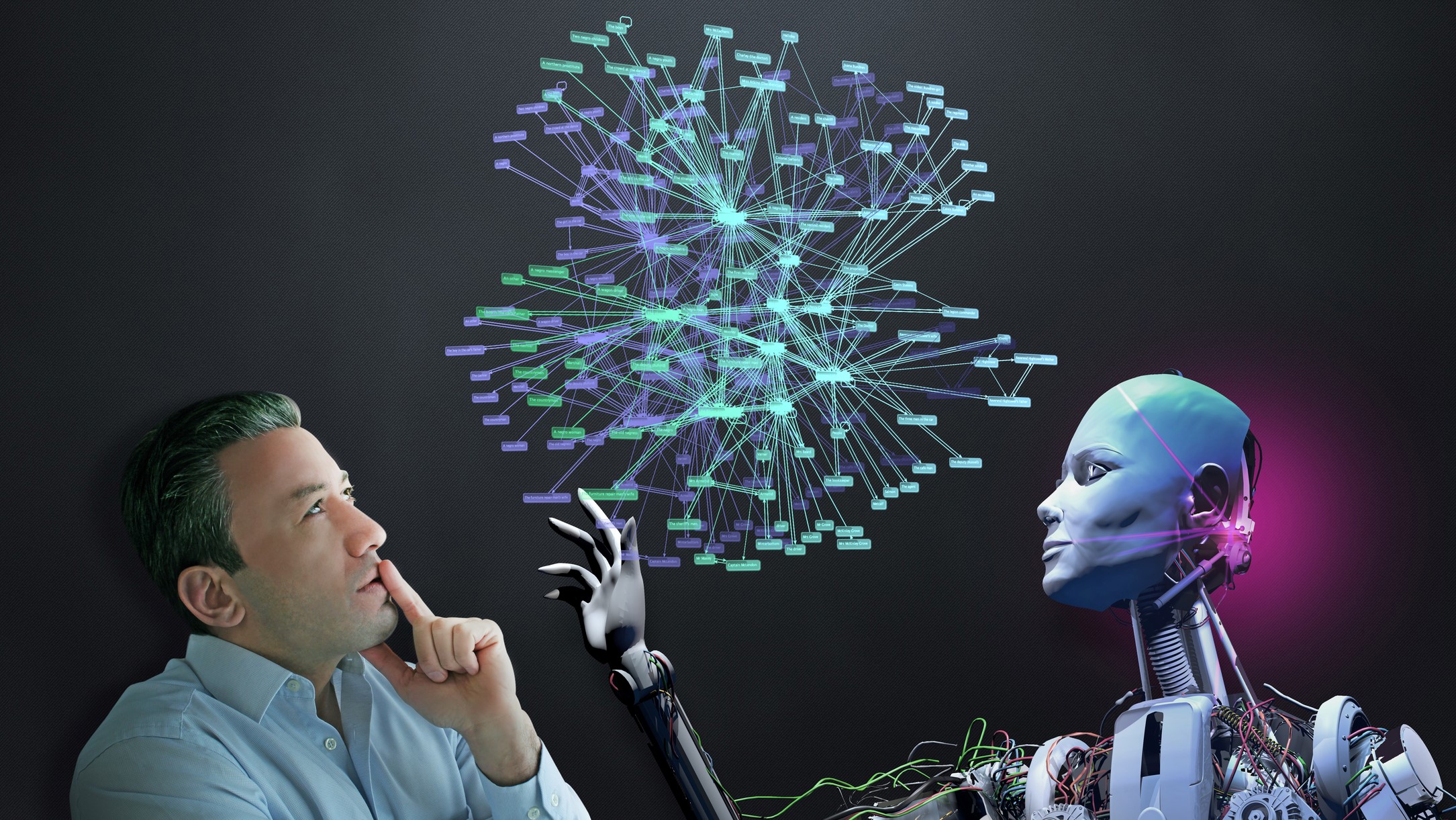Could 2019 be the year AI and automation become mainstream?
Businesses find new ways to utilise AI and automation

Artificial intelligence (AI) gained a lot of ground this year as the emerging technology was implemented in products, websites and apps. Amazon Alexa and Google Home also found their way into more homes exposing consumers to AI and it is beginning to look like what was once deemed a future technology is now beginning to creep into our daily lives.
At the same time, automation also gained a lot of attention as businesses found new ways to automate tasks to help improve productivity as well as employee well-being. TechRadar Pro spoke with NICE’s VP EMEA of Robotic Automation and AI, Sharon Einstein to find out what next year and the future has in store for AI and automation.
Last year, Forrester predicted that organisations would struggle to adopt artificial intelligence. Do you think 2019 will be the year that artificial intelligence becomes more commonplace?
If you agree with the position that artificial intelligence (AI) is the next step in the evolution of robotic process automation (RPA), you could argue that businesses are already adopting some forms of AI. For example, research from Deloitte suggests that 53 per cent of businesses already support their human employees with some sort of robotic process automation (RPA). This number is also expected to increase to 72 per cent by 2020.
As organisations develop a better understanding of the potential of RPA to transform business processes and employee experiences, adoption will increase and organisations will even begin to consider RPA for more complex scenarios than they do at the moment. We are only at the early adoption stage and many organisations are still waiting to see the impact it has before they invest.
Looking forward, those businesses that take a wider view of automation will make a breakthrough when it comes to adoption. By using a capability that goes beyond ‘unattended’ RPA and out into the wider operations, the opportunity to expand is exponentially increased. By having ‘human augmentation’ as part of the capability, it is possible to target wider areas of an organisation that would benefit from the technology, rather than being confined to a few back-office processes.
PwC estimated about 20 per cent of jobs will be automated over the next 20 years and no sector will be unaffected. Do you have any advice for business looking to adopt AI and automation in 2019?
The biggest question businesses face with RPA and AI is where to start, and many automation projects fail simply due to selecting the wrong processes – i.e. ones that are too complex, too niche etc. Automated discovery tools like NICE’s Automation Finder can be very useful for organisations trying to decide which processes to automate. These tools use sophisticated machine learning algorithms to make recommendations on which processes will yield the best ROI.
I would also advise organisations to consider more than just the efficiency benefits. AI and automation can also be helpful for transforming the employee experience. For example, consider what can be achieved through real-time guidance, decision-making support and best practices provided when they are needed. A data-driven approach can also help as it gives you the real picture, rather than having to spend weeks or months analysing every area of a business.
Lastly, I recommend that enterprises look at automation and AI as an opportunity to repurpose their existing workforce. Take the time to map out processes across various parts of the business and focus employees on areas which require human input and skill, and employ robotic automation for the processes which are more suited for automation and will make a more significant impact on business results.

What do you think has held businesses back when it comes to their implementing automation solutions as part of their digital transformation journeys?
There are many reasons. Not knowing where to start, waiting for the early adopters to show business results and the perception that automation replaces people are all factors that come into play. Ramping up a digital transformation project is a long journey with many components – and there's no doubt that automation is a part of it – but before starting to automate there's an earlier stage of revisiting current processes and optimising them.
Not knowing how to scale can also be a hindrance, as well as the size of the process – deploying AI is often an end-to-end digital transformation project that demands a comprehensive change management program.

How can businesses use AI to power their employees in 2019?
AI can be a powerful tool for employee engagement. It can help with personalising the employee experience and providing them with the necessary level of assistance and support. By helping them go faster though their tasks, AI will ensure they are always motivated.
AI-driven personal assistants can be deployed for every employee, enabling them to make better decisions and become more productive and effective in their work. At the moment, the average employee spends an average of 80 percent of their day on mundane, routine work that don’t necessarily need human input. As a result, a significant amount of potential often goes unrealised. By integrating automation and AI into daily routines, employees are free from monotonous tasks to undertake more exciting and rewarding tasks that add real value. For many organisations, this means improved employee satisfaction, with employees feeling that their time is better valued.
Are there any other comments you would like to make?
Automation and AI are both generating a huge amount of excitement in the market. However, the challenge for businesses will be keeping up the momentum. As previously mentioned, businesses will need to make sure that they have an effective change management plan to help manage this process. This requires addressing challenges head on, providing training to employees, monitoring progress, asking for feedback to work on areas that need improvement.
Sharon Einstein, VP EMEA Robotic Automation and AI at NICE
- We've also highlighted the best AI platforms for business
Are you a pro? Subscribe to our newsletter
Sign up to the TechRadar Pro newsletter to get all the top news, opinion, features and guidance your business needs to succeed!
Sharon Einstein is VP EMEA of Robotic Automation and AI at NICE. She has over more than 15 years of working experience. She believes, that as more businesses embrace ever more advanced technology, the impact on customers and employees will be substantial. Keeping ahead of the curve at present takes dedication, but the next generation of machine learning, AI, predictive analytics and robotics will change business like never before.
